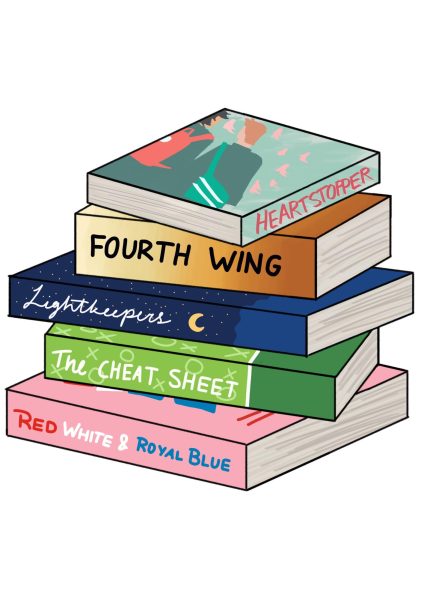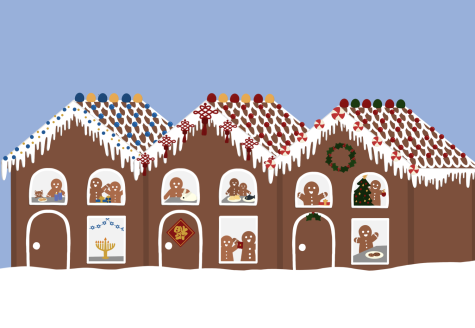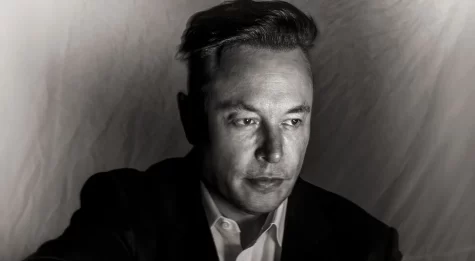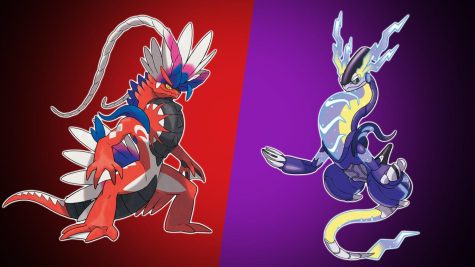Winter Holidays: Hannukah’s assimilation
When we use the term “winter holidays,” what are we talking about? Hanukkah? Kwanzaa? The winter solstice? No matter how much the phrase “Happy Holidays!” is thrown around, the Christian celebration of Saint Nick is a staple of the winter season. Christmas is an incredibly culturally and important time in American culture, yet the consumerist culture that surrounds the holiday affects other holidays that share the same time of the year.
When the term “holidays” is used as a placeholder for Christmas, it allows businesses to unfairly profit off of other religious events. This allows for money to be made off of a more minor holiday such as Hanukkah, the Jewish festival of lights. The evolution of Hanukkah from a minor Jewish holiday into a “Jewish Christmas” is just an example of cultural assimilation. Assimilation, or the process in which a minority group’s belief comes to resemble a majority group’s belief, has long been an issue when it comes to Jews in America.
Capitalism, consumerism and Christmas shopping go together like cookies and milk, or latkes and applesauce. Every significant aspect of Christmas is being replaced with Hannukah for commercial purposes, targeting a previously untapped market. What is the purpose of a
Hanukkah tree? Why would anyone ever wear a Hanukkah sweater? These material items lend no purpose to the holiday other than giving it a tasteless, cheap flair. Ugly Christmas sweaters are a huge part of the consumerist culture that is the Christmas season. But as the years go by, more Hanukkah centered motifs are appearing, such as Hanukkah sweaters, consisting of Stars of David and Menorahs. This forces an idea of interchangeability between Christmas and Hanukkah… one that does not exist! By forcing Hanukkah into this Christmas shaped box, it is no longer an individual holiday that takes place in winter, it is now a staple Winter holiday.
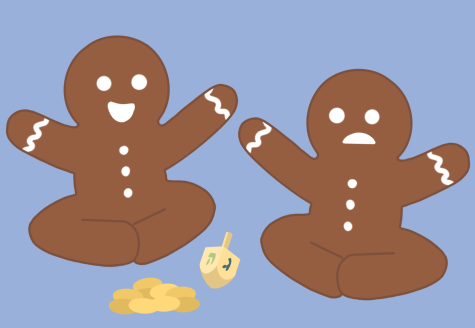
Christianity has long been the most prevalent religion in the United States, dating back to the colonial period. Only 6% of Americans identify with non-Christian faiths, according to a 2021 Washington post survey, which means that its rare to find someone who does not celebrate the holiday. The idea being promoted by many major corporations of Hanukkah being a less cool Christmas ruins the entire idea behind the holiday itself.
Hanukkah is a festival of lights and a celebration of the Second Temple in Jerusalem and makes up one of the 17 recognized holidays in the Jewish religion. However, compared to other Jewish holidays, it is not a significant holiday, despite the fact of it is recognized as such. While it is enjoyable, it is not comparable to Pesach, the celebration of freedom or Rosh Hashanah, the New Year. However, these holidays will never receive the amount of publicity that Hannukah gets, as it is much more difficult to profit off of them. As the years progress and the commercial opportunity of Hanukkah becomes more visible, it starts to appear more in stores and in the public eye. The Hanukkah storybooks and apparel seen today would most certainly not be seen 20 or even 10 years ago. This does not change the fact that Hanukkah is simply not that important of a holiday, although it is receiving treatment similar to a Jewish version of Christmas.
While the assimilation of Hanukkah into American culture might be seen as more politically correct or inclusive of all holidays, it is offensive to the Jewish community of the United States. By falsifying the importance of the holiday and attempting to profit off of the religious celebration, it is altering the way that the holiday is seen in this country in a disgustingly consumerist way.



